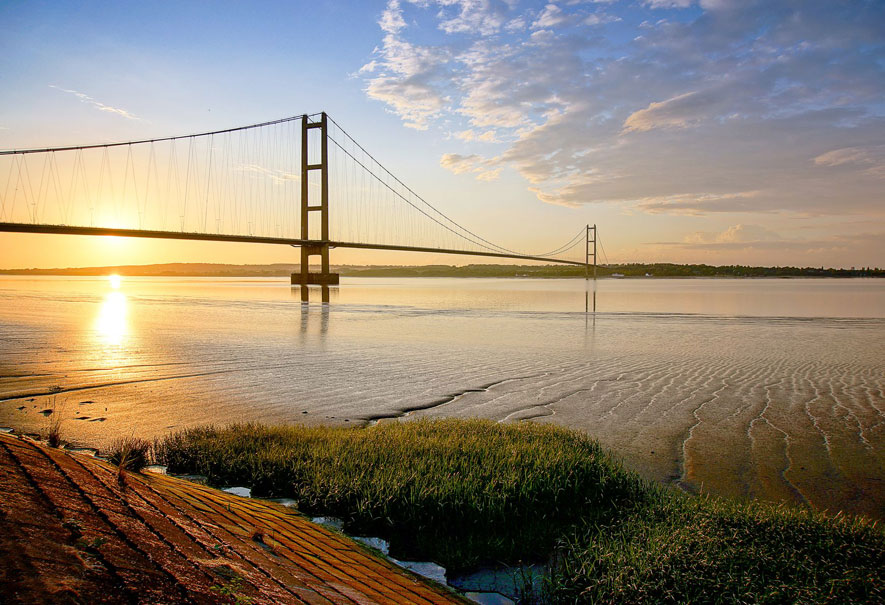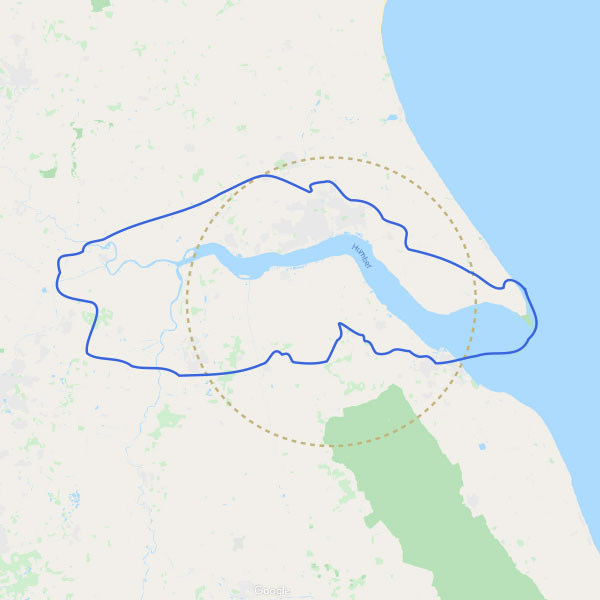
“There are few places around the world more crucial to the road to net zero and industrial decarbonisation than the Humber, it is a location from which so much can be achieved and learned”
Jörgen Sandström
Head of Energy, Materials, Infrastructure Program – Industrial Transformation, World Economic Forum
Stimulating economic growth in the UK’s Energy Estuary
Offshore wind energy in the UK is poised to grow rapidly over the next decade, with ambitions to deploy 40GW of clean electricity by 2030 as part the ‘ten point plan’ for a green industrial revolution.
The Humber is perfectly positioned to create a low carbon roadmap for the rest of the UK and Europe. With significant investment in decarbonisation projects spanning hydrogen energy, carbon capture, storage and usage and solar power, the Humber proudly carries the title of the UK’s ‘Energy Estuary.’
Freeport status will enable the Humber to maximise opportunities which arise from the net zero transition, creating highly-skilled jobs and driving investment both regionally and across the UK.
The Humber also has significant strengths, capabilities and assets across a broad spectrum of chemicals manufacturing and processing.
The region has a strong advanced manufacturing base as well as an extensive logistics sector, providing opportunities for the supply chain and distribution.

• Green Energy Jobs
• Decarbonisation
• Exports
• Rail industry supply chain
• Innovation centre
• Customs Site
• Green Energy jobs at Able Humber Port
• Expansion of South Humber Industrial Investment Park
Six reasons to choose the Humber
Strategic Location: Strategically located on England’s east coast, the Humber boasts prime connections to the UK, Europe, and globally, and is the UK’s busiest port complex, facilitating international trade and investment and providing easy access to the consumer market.
Infrastructure and Connectivity: With ample land for development, the Humber offers excellent connectivity by road, rail, sea, and air. It is also the most digitally connected city and region, establishing itself as an ideal hub for inward investors.
Skilled Workforce: With continuous investment into advanced training facilities and education, the Humber boasts a highly skilled workforce, with key strengths in technical, manufacturing, and engineering skills.
Business Environment: Through collaborative public-private partnerships, the Humber fosters a supportive business environment, offering services, funding access, and regulatory support to enable business growth and success.
Scale of Opportunity: The Humber presents the UK’s biggest decarbonisation opportunity, is a leader in the transition to a net-zero economy and offers opportunities of scale for global investors and supply chains.
Place: The Humber has a powerful story to tell as a global example of a ‘place’ that is re-defining itself through renewed confidence, ambition, investment, and opportunity, busily preparing to be a sustainable economic and social powerhouse for the UK.
Humber Freeport has launched three development strands to focus investment and growth opportunities.
Decarbonisation
The Humber is the pre-eminent cluster for energy in Northwest Europe. Our decarbonisation sub-group will maximise opportunities across the UK’s Energy Estuary, supporting clean growth and attracting further investment in low carbon energy and technology
Skills
Freeport status aims to generate over 7,000 mostly skilled jobs, not only in green energy, but in sectors ranging from logistics and chemicals to advanced manufacturing. Our skills sub-group will ensure our region has the right people, with the right expertise, to drive economic growth
Freeport status will create a hotbed for new, emerging technologies, driving transformational change. Our innovation sub-group will support businesses with R&D, technology advice and knowledge transfer, with a focus on clusters including clean energy, advanced manufacturing and logistics
Connectivity
- M62 connection to Leeds (60 miles), Manchester (100 miles) and Liverpool (130 miles)
- Access to York in 60 minutes via A1079
- Easy access to M1 corridor, with connections to Birmingham, Newcastle and London
- Humber Bridge easily connects the north and south banks of the Humber.
- Daily ferry crossing to Port of Rotterdam in the Netherlands.
- Global trade and shipping opportunities through the Humber ports
- Direct rail link to cities including London, Manchester, Liverpool, Leeds and York.
- Hull to London, via Hull Trains, accessible in 150 minutes.
- Freight services to all of the UK from Hull and the Humber ports.
- Humberside Airport has flights to several UK and European destinations including daily flights to Schiphol for connections to the rest of the world.

